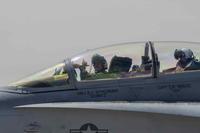By now, you've probably heard about Seymour Hersh's latest bombshell: that U.S. forces have been conducting covert raids into Iran since last summer.
Much of the focus is on the accumulation of intelligence and targeting information on Iranian nuclear, chemical, and missile sites, both declared and suspected. The goal is to identify and isolate three dozen, and perhaps more, such targets that could be destroyed by precision strikes and short-term commando raids. The civilians in the Pentagon want to go into Iran and destroy as much of the military infrastructure as possible, the government consultant with close ties to the Pentagon told me...
Defense Department civilians, under the leadership of Douglas Feith, have been working with Israeli planners and consultants to develop and refine potential nuclear, chemical-weapons, and missile targets inside Iran. (After [the Israel raid on Iraq's nuclear reactor at] Osirak, Iran situated many of its nuclear sites in remote areas of the east, in an attempt to keep them out of striking range of other countries, especially Israel. Distance no longer lends such protection, however: Israel has acquired three submarines capable of launching cruise missiles and has equipped some of its aircraft with additional fuel tanks, putting Israeli F-16I fighters within the range of most Iranian targets.)
They believe that about three-quarters of the potential targets can be destroyed from the air, and a quarter are too close to population centers, or buried too deep, to be targeted, the consultant said. Inevitably, he added, some suspicious sites need to be checked out by American or Israeli commando teamsin on-the-ground surveillancebefore being targeted.
All of which sounds perfectly reasonable to me. But, this being the Bushies, there has to be at least a touch of wild-eyed messianism thrown into the mix. And indeed, there is, Hersh reports.
The immediate goals of the attacks would be to destroy, or at least temporarily derail, Irans ability to go nuclear. But there are other, equally purposeful, motives at work. The government consultant told me that the hawks in the Pentagon, in private discussions, have been urging a limited attack on Iran because they believe it could lead to a toppling of the religious leadership. Within the soul of Iran there is a struggle between secular nationalists and reformers, on the one hand, and, on the other hand, the fundamentalist Islamic movement, the consultant told me. The minute the aura of invincibility which the mullahs enjoy is shattered, and with it the ability to hoodwink the West, the Iranian regime will collapselike the former Communist regimes in Romania, East Germany, and the Soviet Union. Rumsfeld and Wolfowitz share that belief, he said.
The idea that an American attack on Irans nuclear facilities would produce a popular uprising is extremely illinformed, said Flynt Leverett, a Middle East scholar who worked on the National Security Council in the Bush Administration. You have to understand that the nuclear ambition in Iran is supported across the political spectrum, and Iranians will perceive attacks on these sites as attacks on their ambitions to be a major regional player and a modern nation thats technologically sophisticated. Leverett, who is now a senior fellow at the Saban Center for Middle East Policy, at the Brookings Institution, warned that an American attack, if it takes place, will produce an Iranian backlash against the United States and a rallying around the regime.
THERE'S MORE: "Mr. Hershs article is so riddled with errors of fundamental fact that the credibility of his entire piece is destroyed," says Pentagon mouthpiece Larry DiRita. "Mr. Hershs source(s) feed him with rumor, innuendo, and assertions about meetings that never happened, programs that do not exist, and statements by officials that were never made."








